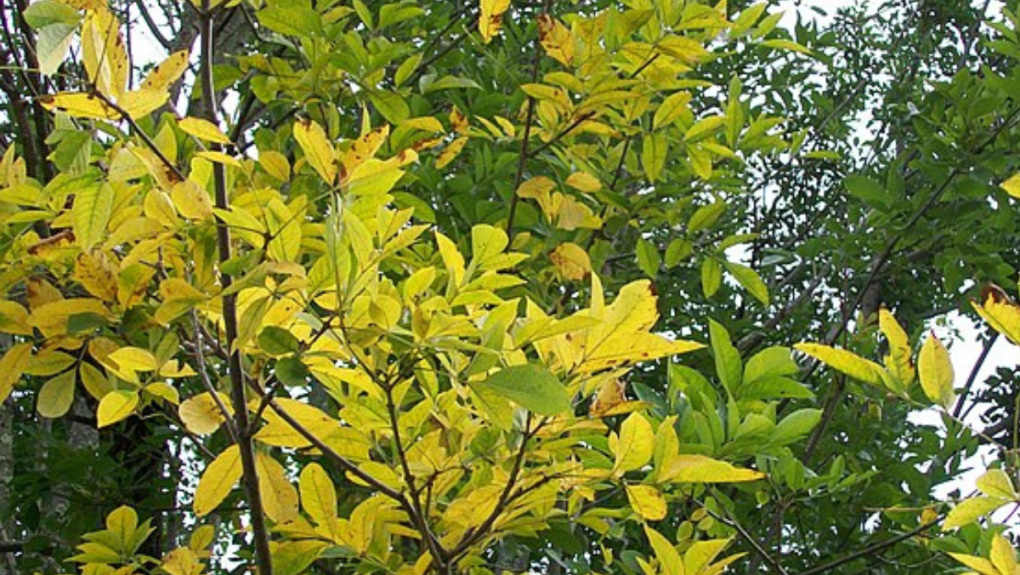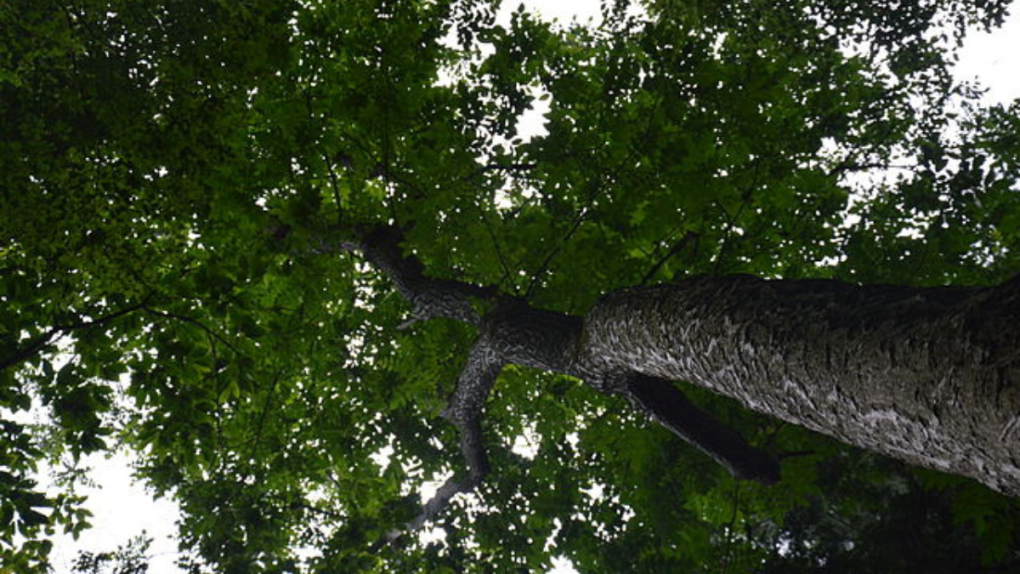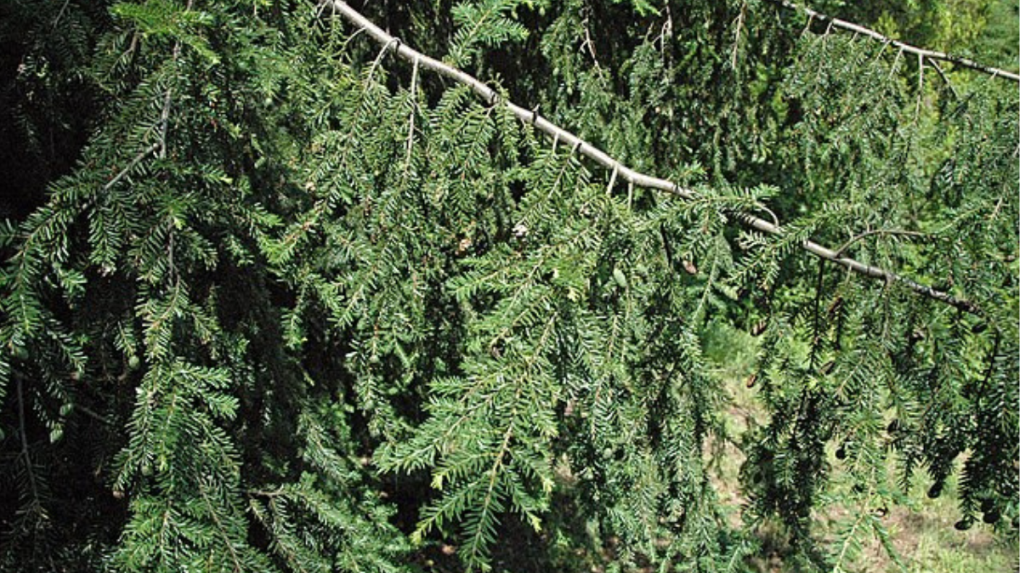Four species of Quebec trees are declining and at risk: Global Tree Assessment
Protect native species, eliminate invasive trees and plant more that belong here.
Those are three tips that conservationists would like to see followed to halt the decline or even extinction of tree species across the globe.
Malin Rivers is head of conservation prioritization at the Botanic Gardens Conservation International, which runs the Global Tree Assessment project and produced a paper warning about the risk of massive tree extinction.
In Quebec, Rivers and her team assessed 78 species of trees and found that four of them are at risk:
- White ash (fraxinus americana)
- Eastern hemlock (tsuga canadensis)
- Butternut (juglans cinerea)
- American elm (ulmus americana)
The bur oak (quercus macrocarpa), white oak (quercus alba), and eastern hop hornbeam (ostrya virginiana) are also decreasing, but not considered at risk.
The white ash is the most concerning and considered critically endangered as it's being decimated by the emerald ash borer.
"The declines we're seeing are so rapid that even though that was a common species initially, the rate of decline of that species is really concerning and with no recoveries being seen either," said Rivers.
 White ash trees are considered at risk of extinction in Quebec. SOURCE: Wiki Commons
White ash trees are considered at risk of extinction in Quebec. SOURCE: Wiki Commons
Invasive trees are common in Quebec as well. The Norway Maple, for example, was introduced to North America in the 1700s. Tree Canada says the Norway Maple can prevent native tree seedlings (sugar maple and red oak) from establishing, and its leaves release toxins that affect soil fungi and microbes.
She said habitat loss, invasive species, and consumer habits have led to a third of the planet's tree species being at risk of extinction.
"We're converting forests and tree habitats to agriculture or plantation areas or urban areas," said Rivers. "In the northern hemisphere, Europe and North America, one of the main threats are pests, invasive species, and diseases."
The tree extinction crisis, the report reads, has the potential to drastically change the global ecosystem and have many negative trickle down effects such as reducing carbon capture, decreasing water levels and damaging habitats for multiple creatures.
"It impacts almost everything," said Rivers. "It impacts humans, but it also impacts much wider in terms of many animals, birds, invertebrates that are all relying on forest habitat."
 The butternut tree (juglans cinerea) is a tree that is declining in Quebec. SOURCE: Wiki Commons
The butternut tree (juglans cinerea) is a tree that is declining in Quebec. SOURCE: Wiki Commons
Rivers reminded, however, that though it's a crisis, it is not one that can't be reversed.
"We have the power to actually save most of these species," said Rivers. "There's no reason why any species should go extinct because we have the tools to conserve species."
She said governments need to take responsible action in terms of tree-planting schemes as well as development, and, on a personal level, consumers need to pay attention to where their food is coming from and be cognisant of how much space their carbon footprint is leaving. For example, Rivers suggested offsetting flights by contributing to responsible tree-planting projects.
"Us as a consumer, we can take responsible action to push the other actors to do better," said Rivers.
 The Eastern hemlock is declining in Quebec according to the Global Tree Assessment. SOURCE: James St. John/ Wiki Commons
The Eastern hemlock is declining in Quebec according to the Global Tree Assessment. SOURCE: James St. John/ Wiki Commons
CTVNews.ca Top Stories

Thousands of structures destroyed in L.A. County's most destructive fire
A series of wildfires tore through densely populated parts of the Los Angeles, Calif. area. Five people have been reported dead. U.S. Gov. Gavin Newsom said thousands of resources have been deployed to contain the fires.
Is the Hollywood sign on fire?
As fires scorch Los Angeles, fake images and videos of a burning Hollywood sign have circulated on social media.
U.S. Supreme Court rejects Trump's bid to delay sentencing in his New York hush money case
A sharply divided U.S. Supreme Court on Thursday rejected president-elect Donald Trump's final bid to put his New York hush-money case on hold, clearing the way for him to be sentenced for felony crimes days before he returns to the presidency.
Ex-Trump adviser says Canada in 'difficult position' amid tariff threat, Trudeau resignation
In the face of a potential tariff war, U.S. president-elect Donald Trump's former national security adviser John Bolton says 'Canada is in a difficult position' in part due to Prime Minister Justin Trudeau's resignation and a looming general election.
PM Trudeau says he thinks Trump is using talk of Canada becoming 51st state to distract from tariff impact
Prime Minister Justin Trudeau says he thinks U.S. president-elect Donald Trump is drumming up drama on Canadian statehood to detract from tariff talks.
Canadian travellers now require an ETA to enter U.K. Here's what to know
Starting Jan. 8, Canadians visiting the U.K. for short trips will need to secure an Electronic Travel Authorization (ETA) before boarding their flight, according to regulations set out by the U.K. government.
'True when I said it, true today': former Canadian PM Harper pushes back against Trump on social media
Former prime minister Stephen Harper doesn’t find U.S. president-elect Donald Trump’s jibes about Canada becoming the 51st U.S. state very amusing.
Poilievre says the next Canadian election will be about the carbon price
Pierre Poilievre returned to Ottawa on Thursday after the holidays with a familiar demand for Justin Trudeau: call a carbon-tax election.
More than 150 students sick at University of Guelph, says public health
More than 150 cases of gastroenteritis have been reported at the University of Guelph.

































